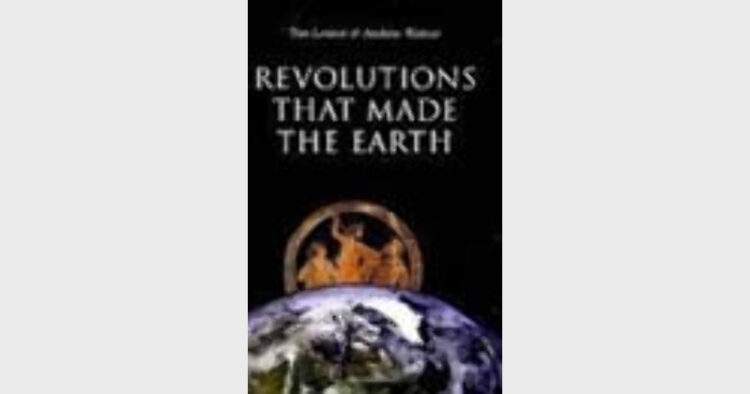Earth: Its past holds hope for future ?
By Dr Vaidehi Nathan?
 Revolutions That Made the Earth, Tim Lenton and Andrew Watson, Oxford University Press, Pp 423 (HB), $52.95?
Revolutions That Made the Earth, Tim Lenton and Andrew Watson, Oxford University Press, Pp 423 (HB), $52.95?
The earth is constantly evolving. What we see today is the result of millions of years of evolution and changes. Authors Tim Lenton and Andrew Watson analyse the thesis that have been in vogue on the origin and emergence of earth in the solar system in their book Revolutions That Made the Earth. They move back thousands of years to look at some of the rare events in the history of earth. The book has six parts. The first two parts deal with the whole of earth history. Part III focusses on the first great transformation of the Earth system. “This hinged on the creators of oxygen gas and its abrupt accumulation in the atmosphere, halfway through the planet’s history. We call it the oxygen revolution.”
They call Part IV “complexity revolution” as it tackles the transformation which started with the “evolution of a new type of cell, and culminated in the appearance of complex creatures from out of turmoil of extreme ice ages and rising oxygen, at the “Cambrian explosion.” The next part deals with the period after Cambrian explosion and the present age earth. The concluding part looks at the future from where we are poised today.
The point is, most of the deep past are largely conjectures, based on interpretations of evidence. Hence they sound heavy, difficult to imagine and highly complicated. There is a debate raging on climate change today, with the world literally set in two camps. While one set of scientists believe that earth has constantly been changing and the temperature change is much ado about nothing, the other section believes that the previous changes were part of the evolutionary process, spontaneous and the present changes are man-prompted and interventionist. On this debate depends a whole lot of economics and politics. The now-developing and emerging countries see it an attempt to dominate by the West, while the West is blaming the more populous south for the fast changing natural environment.
This book does not directly address these issues. But the authors do give ideas on how to deal with such hot issues as greenhouse carbon dioxide, sustainable energy and recycling.
The authors are conscious of the fact that the subject is tough and the writing may be hard to several readers. Right at the outset they have mentioned that they have tried to break things down as much as they could without compromising on the text. It is definitely not an easy book to negotiate for all. Nevertheless the book is exhaustive on the history of earth. Tim Lenton is Professor of Earth System Science at the University of East Anglia and Andrew Watson holds a Royal Society Research Professorship at the University of East Anglia.
(OUP-USA Executive, Editorial and Sales Offices, Oxford University Press 198, Madison Avenue, New York, NY 10016 USA)













Comments